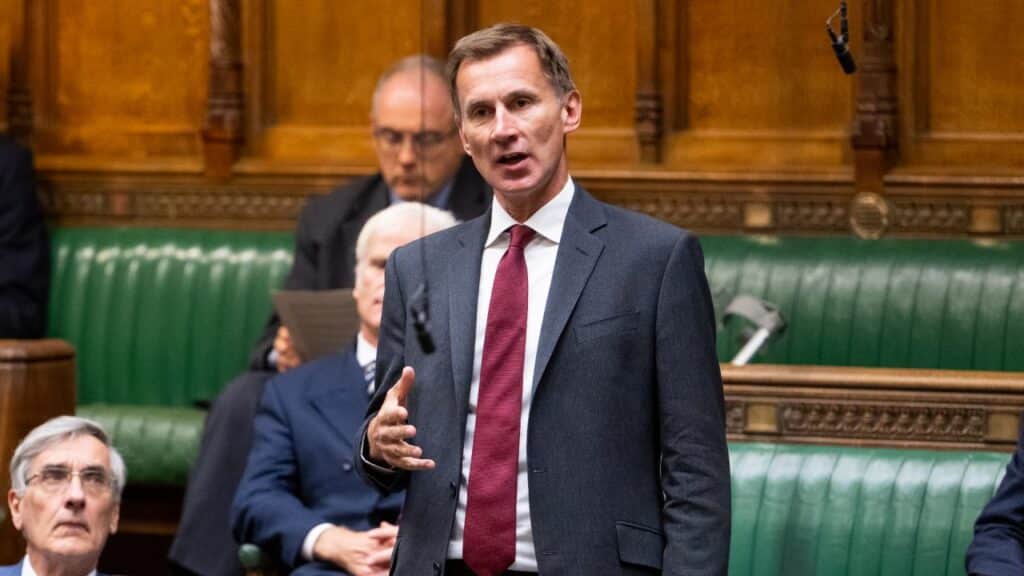What to Expect from the UK Budget Report
The UK Budget Report, scheduled for presentation by Treasury Chancellor Jeremy Hunt on Wednesday, 6th March at 12:30 GMT, is poised to address critical fiscal and economic matters impacting the nation. Traditionally, the Budget serves as a roadmap for the government’s financial plans for the upcoming fiscal year, encompassing taxation, public spending, and economic forecasts.

Taxation in Focus
Amid concerns over the UK’s escalating tax burden, heightened by pandemic-induced spending and fiscal drag, the Budget is expected to address taxation policies. The government’s decision to freeze tax thresholds until 2028 has drawn attention to the concept of fiscal drag, wherein taxpayers are inadvertently pushed into higher tax brackets due to inflation-driven income growth. Chancellor Hunt faces pressure to alleviate this burden, although limited fiscal headroom presents challenges to substantial tax cuts.
Potential Tax Policy Developments
Speculation surrounds potential tax policy changes, including a rumoured 1p cut to Class 1 National Insurance Contributions (NICs). Such a move, though modest, could provide relief to taxpayers, particularly low and middle-income earners. Additionally, the proposal for a “Great British ISA” has garnered attention, suggesting a focus on encouraging investment in UK-listed equities through tax-efficient savings accounts. However, concerns persist regarding the efficacy and implications of such measures, including their impact on investor behaviour and market dynamics.
Scrutiny on Non-Dom Status
The Budget may also address the contentious issue of non-domiciled (non-dom) tax status, allowing individuals residing in the UK but not officially domiciled to avoid taxes on overseas income. Scrapping non-dom status could signal a political manoeuvre ahead of upcoming elections, albeit with minimal direct impact on the majority of taxpayers.
Election Uncertainty and Fiscal Policy
The looming spectre of elections introduces uncertainty regarding the longevity of Budget policies, as past elections have often led to policy reversals or subsequent Budget revisions. Analysts caution that any tax cuts implemented in the current Budget may face reconsideration post-election, underscoring the dynamic nature of fiscal policy in the face of political shifts.

As Chancellor Hunt prepares to unveil the Budget, the nation awaits eagerly for insights into the government’s economic vision and strategies to navigate the challenges and opportunities ahead.
Understanding the UK Budget Report
The UK Budget Report is an annual financial statement presented by the Chancellor of the Exchequer to the Parliament of the United Kingdom. It outlines the government’s proposed spending and revenue plans for the upcoming fiscal year, as well as any changes to taxation, borrowing, and public expenditure policies. The Budget typically includes forecasts for economic growth, inflation, unemployment, and other key economic indicators, along with detailed allocations for various government departments and programs. It serves as a crucial tool for fiscal planning and policymaking, shaping the country’s economic direction and priorities. The last budget report was the Spring Budget 2023.
Significance of the UK Budget Report
The UK Budget holds immense significance both domestically and internationally for several reasons:
Economic Policy Framework: The Budget sets the framework for the government’s economic policy, detailing its plans for taxation, spending, and borrowing. It reflects the government’s priorities and objectives in managing the economy, addressing key issues such as growth, employment, inflation, and public services.
Impact on Individuals and Businesses: The Budget directly affects individuals and businesses across the UK through changes in tax rates, allowances, and government spending. It can influence consumer behaviour, investment decisions, and overall economic activity, making it a critical factor in shaping the country’s economic landscape.
Market and Investor Sentiment: Financial markets closely monitor the Budget announcement for insights into the government’s fiscal stance and economic outlook. Any surprises or significant policy changes can impact market sentiment as people try to trade the news, leading to fluctuations in asset prices, currency exchange rates, and investor confidence.
Public Services and Welfare: The Budget allocates funding for essential public services such as healthcare, education, defence, and social welfare programs. Changes in spending priorities and resource allocations can have far-reaching implications for citizens’ access to essential services and support systems.
Fiscal Discipline and Stability: A well-balanced Budget is essential for maintaining fiscal discipline and economic stability. It ensures that government spending is sustainable, borrowing is kept under control, and public finances remain resilient in the face of economic challenges or external shocks.
The UK Budget serves as a critical tool for economic management, policymaking, and governance, playing a central role in shaping the country’s economic trajectory and improving the well-being of its citizens.